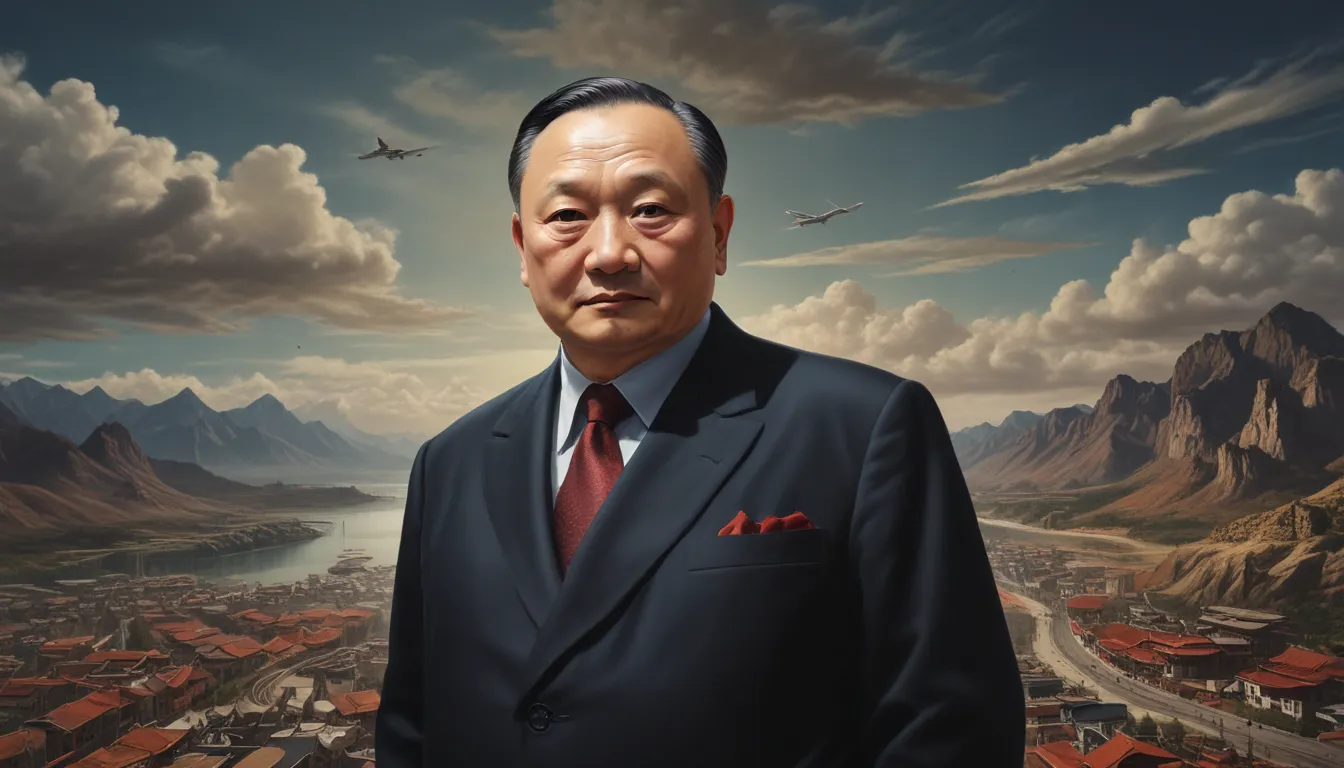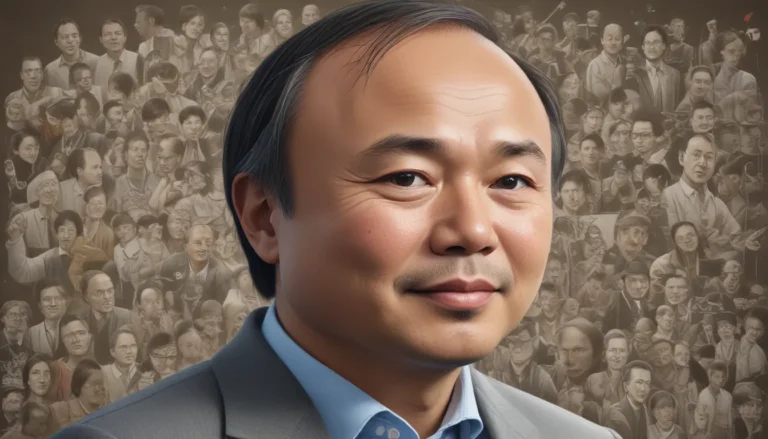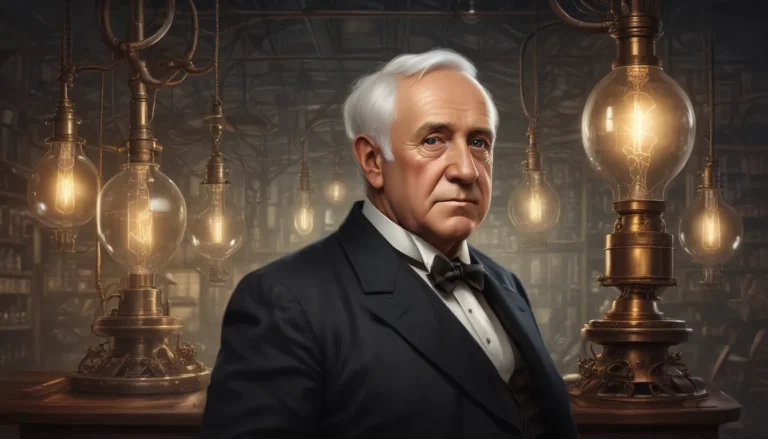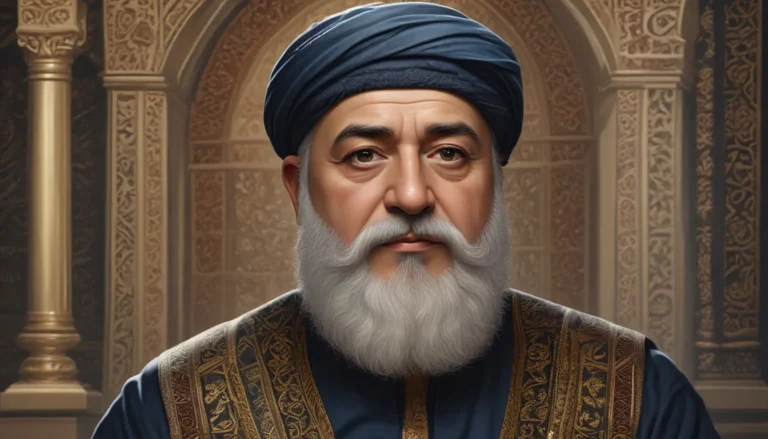The images in our articles may not match the content exactly. They are used to grab your attention, not to show the exact details in the text. The images complement the text but do not replace it.
Deng Xiaoping, a pivotal figure in modern Chinese history, continues to intrigue and captivate people worldwide with his complex persona and lasting legacy. From his revolutionary beginnings to his transformative economic reforms, Deng Xiaoping’s enigmatic character leaves a lasting impact on China’s political and economic landscape. In this article, we delve into 12 lesser-known facts about Deng Xiaoping that shed light on his enigmatic personality and his enduring influence.
The Revolutionary Start: Deng Xiaoping as a Guerrilla Fighter
Deng Xiaoping’s early political career began as a guerrilla fighter during the Chinese Civil War, where he joined the Communist Party of China. This experience shaped his commitment to the communist ideology and laid the foundation for his revolutionary spirit.
The Architect of Modernization: Deng Xiaoping’s Economic Reforms
As the paramount leader of China from 1978 to 1992, Deng Xiaoping spearheaded economic reforms that transformed China into a global economic powerhouse. His “Four Modernizations” campaign focused on agriculture, industry, national defense, and science and technology, paving the way for China’s modernization.
Embracing Unique Ideologies: Deng Xiaoping’s “Socialism with Chinese Characteristics”
Deng Xiaoping introduced the concept of “socialism with Chinese characteristics,” emphasizing China’s ability to pursue socialism tailored to its specific historical, cultural, and economic circumstances. This ideology shaped China’s political and economic landscape under Deng Xiaoping’s leadership.
Controversial Policies: Deng Xiaoping and the “One Child Policy”
Deng Xiaoping implemented the controversial “One Child Policy” in response to China’s overpopulation challenges. While successful in curbing population growth, the policy had unintended consequences such as gender imbalance and an aging population, highlighting the complexities of his governance.
Diplomatic Savvy: Deng Xiaoping’s “One Country, Two Systems” Policy for Hong Kong
Deng Xiaoping crafted the “One Country, Two Systems” policy for the peaceful transition of Hong Kong from British rule to Chinese sovereignty in 1997. This policy allowed Hong Kong to maintain its autonomy and economic systems, showcasing Deng Xiaoping’s diplomatic acumen.
Pragmatic Leadership: Deng Xiaoping’s Approach to Governance
Unlike his predecessor Mao Zedong, Deng Xiaoping’s leadership style focused on practical policies and reforms over rigid ideology. His famous quote, “It doesn’t matter if a cat is black or white, as long as it catches mice,” epitomizes his pragmatic approach to governance.
Global Diplomacy: Deng Xiaoping’s Historic Visit to the United States
In 1979, Deng Xiaoping made history as the first Chinese leader to visit the United States since the establishment of the People’s Republic of China. This visit laid the foundation for diplomatic and economic relations between China and the U.S., showcasing Deng Xiaoping’s forward-thinking diplomacy.
Economic Transformation: Deng Xiaoping’s Poverty Alleviation Efforts
Under Deng Xiaoping’s leadership, China experienced significant economic growth that lifted millions of people out of poverty. His market-oriented reforms and openness to foreign investment played a crucial role in China’s economic transformation and poverty alleviation efforts.
Collective Leadership: Deng Xiaoping’s Vision for Decision-Making
Deng Xiaoping believed in collective leadership, favoring a system where decisions were made by a group of leaders rather than a single individual. This approach contrasted with the cult of personality surrounding Mao Zedong, reflecting Deng Xiaoping’s emphasis on collaborative governance.
Continuing Influence: Deng Xiaoping’s Post-Retirement Legacy
Even after retiring from official positions, Deng Xiaoping remained influential in Chinese politics through his economic and political ideologies, known as “Dengism.” His enduring impact on China’s policies and reforms underscores the lasting legacy of Deng Xiaoping.
Enigmatic Quotes: Deng Xiaoping’s Words of Wisdom
Deng Xiaoping’s famous quote, “To get rich is glorious,” embodies his commitment to economic development and individual prosperity. This statement reflects his vision for a modern, dynamic China driven by innovation and success, inspiring generations to strive for personal achievement.
Legacy and Debate: Deng Xiaoping’s Enduring Impact on China
Deng Xiaoping’s legacy continues to spark debates and discussions about his leadership and reforms’ significance in shaping China’s development. His nuanced approach to governance and economic reforms continue to influence China’s political, social, and economic landscape, underscoring his enduring impact.
Conclusion
In conclusion, Deng Xiaoping’s enigmatic character and transformative leadership have left an indelible mark on modern Chinese history. From his revolutionary roots to his pragmatic governance, Deng Xiaoping’s legacy embodies a complex blend of vision, pragmatism, and influence. As we unravel the layers of Deng Xiaoping’s persona, we gain a deeper understanding of his pivotal role in shaping China’s trajectory and his enduring impact on the nation’s development.
FAQs
-
What were Deng Xiaoping’s major accomplishments?
Deng Xiaoping’s major accomplishments include modernizing China’s economy, implementing market-oriented reforms, and lifting millions of people out of poverty. -
What was Deng Xiaoping’s role during the Tiananmen Square protests in 1989?
Deng Xiaoping was not directly involved in the Tiananmen Square protests but played a key role in the subsequent crackdown that resulted in casualties. -
How did Deng Xiaoping impact China’s foreign policy?
Deng Xiaoping focused on strengthening China’s military and diplomatic relations with other countries through his “Four Modernizations” policy. -
Did Deng Xiaoping hold official positions after stepping down from power?
Deng Xiaoping retained influence through his protégés but did not hold official government positions after retiring from key leadership roles. -
What were Deng Xiaoping’s views on political reform?
Deng Xiaoping prioritized economic development over political reform, emphasizing strong central leadership and practical governance. -
How did Deng Xiaoping contribute to China’s education system?
Deng Xiaoping emphasized the importance of education for economic growth and introduced reforms to expand higher education opportunities in China. -
What impact did Deng Xiaoping have on China’s military?
Deng Xiaoping modernized China’s military by investing in advanced weapons systems and improving training and organization to enhance defense capabilities. -
Did Deng Xiaoping face opposition during his tenure?
Deng Xiaoping faced opposition from various factions within the Communist Party but maintained power through his strategic political maneuvers. -
How did Deng Xiaoping handle Hong Kong’s sovereignty issue?
Deng Xiaoping proposed the “One Country, Two Systems” policy, allowing Hong Kong to maintain its autonomy and economic systems under Chinese sovereignty. -
What was Deng Xiaoping’s stance on free-market capitalism?
Deng Xiaoping embraced elements of free-market capitalism, encouraging foreign investment while maintaining state control over strategic industries. -
How did Deng Xiaoping contribute to China’s poverty alleviation efforts?
Deng Xiaoping’s economic reforms and job creation initiatives lifted millions of Chinese citizens out of poverty, significantly reducing poverty levels in the country. -
What was Deng Xiaoping’s relationship with Mao Zedong?
Deng Xiaoping served under Mao Zedong but faced political persecution during the Cultural Revolution and regained power only after Mao’s death.
Deng Xiaoping’s enduring legacy continues to shape China’s political narrative and global influence, inviting us to explore the complexities of his leadership and vision. As we delve into the enigmatic persona of Deng Xiaoping, we gain valuable insights into his lasting contributions to China’s modernization and global presence. Join us in unraveling the captivating stories of transformative leaders like Deng Xiaoping and Manmohan Singh, each leaving a profound mark on their respective nations’ destinies. Explore the diverse perspectives and engaging narratives that drive our commitment to delivering trustworthy and insightful content for readers like you.
Your Feedback Matters!
We strive to provide engaging and informative content that enriches your knowledge and understanding of diverse topics. Your feedback and contributions play a vital role in maintaining the credibility and authenticity of the facts we share. Trust in our dedication to delivering high-quality content as we continue to explore and discover the intriguing narratives that shape our world. Thank you for being a part of our community of curious minds!






